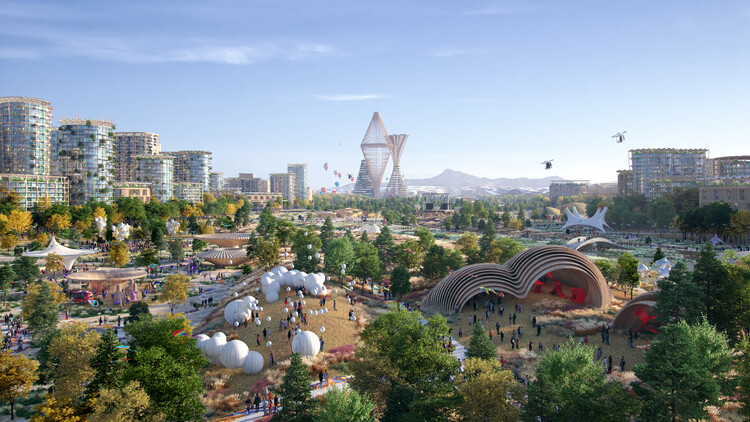
Telosa is a conceptual proposal designed by Bjarke Ingels Group BIG in collaboration with entrepreneur Marc Lore, first announced in 2021. Planned to accommodate five million residents by 2050, the project sets out to establish a framework for sustainable and equitable urban living. Its initial phase, projected for 2030, is expected to house 50,000 people. Positioned as a purpose-built city, Telosa presents a long-term vision that combines ecological resilience, technological systems, and an alternative governance model as a possible prototype for future urban development.
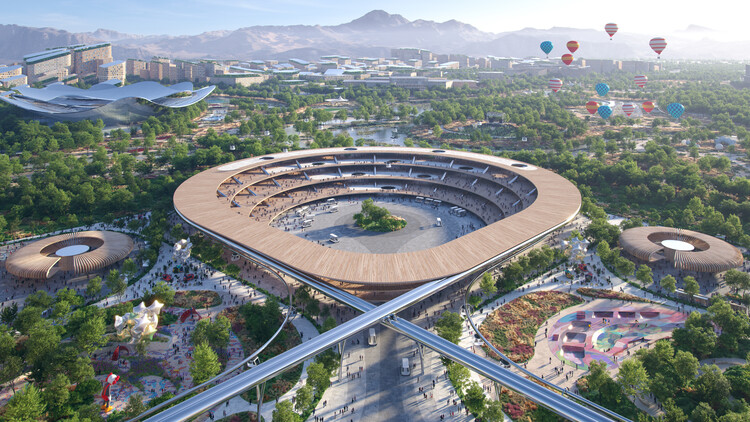
Encompassing 159,000 acres, the master plan integrates renewable energy production, drought-resistant water systems, and eco-friendly architecture. At its center, a timber skyscraper known as the Equitism Tower is envisioned as both a landmark structure and a symbol of the city's proposed economic model. Incorporating aeroponic farms, photovoltaic roofs, and water storage systems, the tower represents the principle of Equitism, in which land ownership and the city's growth are designed to benefit all residents. Renderings of the proposal highlight additional typologies such as a timber mobility hub and a silver-clad sports village, while earlier visualizations depicted low-rise, undulating blocks spread across a desert site.
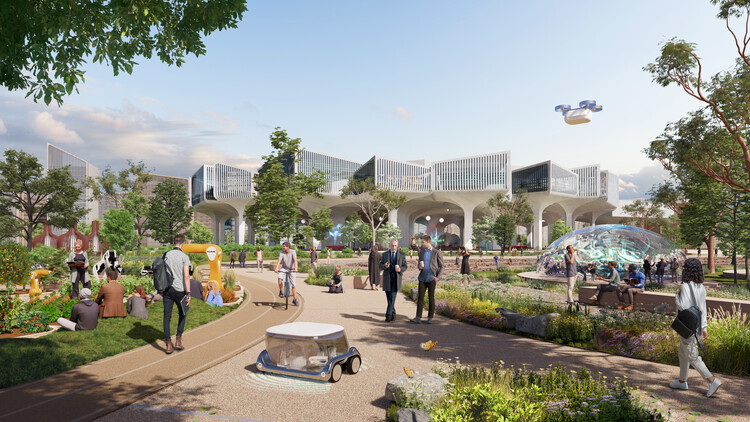
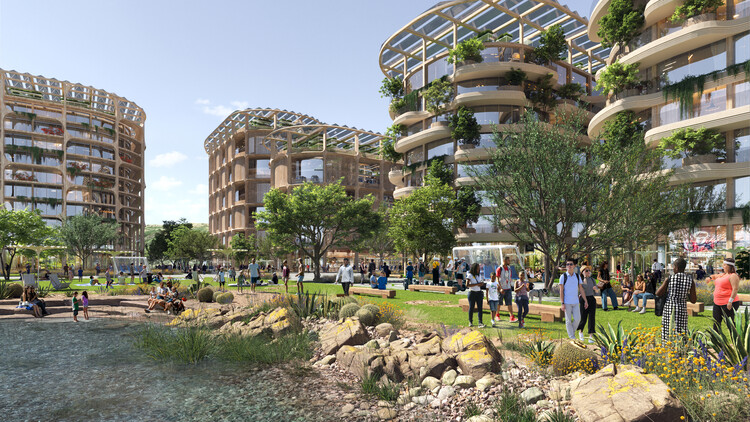
The urban design emphasizes accessibility and public space. Following the 15-minute city model, schools, workplaces, and essential services are planned within short commutes from homes. Fossil fuel-powered vehicles are excluded, with transport relying on bicycles, scooters, autonomous electric vehicles, and the Sky Tram. Green infrastructure and native planting are integrated throughout the city, with managed reservoirs forming part of a central public spine.
Related Article
BIG Wins Competition to Transform Three Urban Plazas into an Interconnected 'City Stage' in Copenhagen, DenmarkEnvironmental performance is a central consideration. Strategies include water infiltration and groundwater recharge, measures to reduce the heat island effect, zero-emission operations, and a circular materials economy to limit resource extraction and preserve habitats. A dedicated fund is proposed to restore ecosystems and protect regional natural resources.
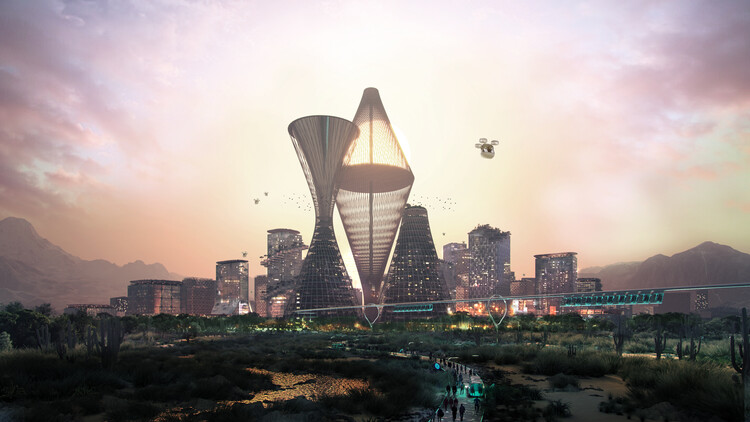
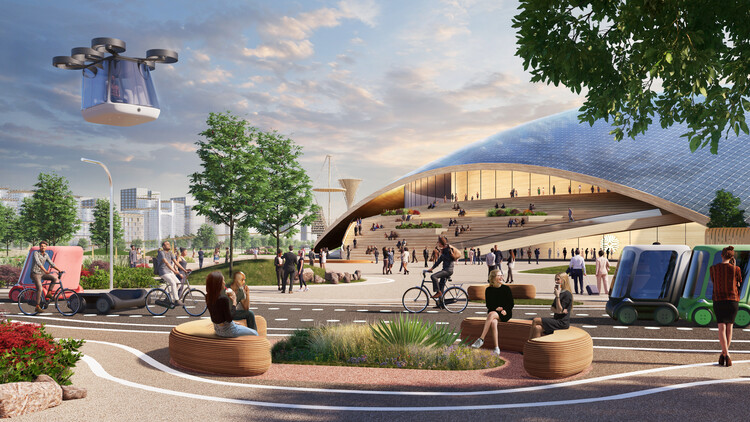
In other recent news from BIG, the firm has several ongoing and upcoming projects worldwide. In Los Angeles, the 670 Mesquit project by BIG, released in December 2016, was approved by the Los Angeles City Council in July 2025, and will be built in multiple phases. In Copenhagen, BIG, together with Doug Aitken Workshop, NIRAS, Volcano, and RWDI, won a competition to redesign three public spaces around major music venues in Ørestad. In Las Vegas, BIG, in collaboration with HNTB, has broken ground on its first realized Major League Baseball stadium, the new A's Ballpark. Scheduled to open ahead of the 2028 MLB season, the stadium will serve as the Athletics' permanent home.
Editor's note: This article was first published on September 3, 2021, by Dima Stouhi and updated on September 1, 2025, to include new renderings and additional project information.




















